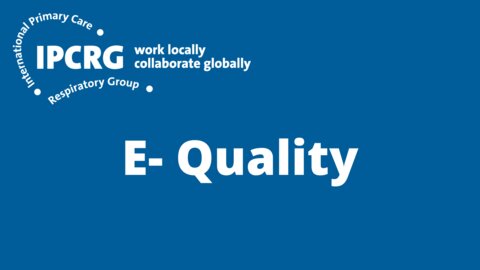E-quality

Global scoping exercise: what education works
In 2012, the IPCRG published the results of a scoping exercise and literature review that was commissioned to inform its E-Quality programme.
The E-Quality programme seeks to support small-scale educational projects to improve respiratory management in primary care. The review explored the question – which educational interventions contribute to improved clinical behaviour with the ultimate aim of improved patient outcomes?
The narrative review synthesised information from three sources:
- publications concerning the global context and health systems development;
- a literature search of Medline, CINAHL and Cochrane databases; and
- a series of eight interviews conducted with members of the IPCRG faculty.
Educational interventions sit within complex healthcare, economic, and policy contexts. Any development project must therefore consider the local circumstances in terms of economic resources, political circumstances, organisation and administrative capacities, as well as the specific quality issue to be addressed. There was limited evidence (in terms of changed clinician behaviour and/or improved health outcomes) regarding the merits of different educational and quality improvement approaches.
Educational interventions that were most likely to show some evidence of effectiveness were those that had been carefully designed, were multifaceted, engaged health professionals in their learning, provided ongoing support, were sensitive to local circumstances, and were delivered in combination with other quality improvement strategies. Consideration of the complex healthcare systems, within which educational interventions operate, is crucial if they are to be effective.
The criteria for the IPCRG E-Quality awards therefore require applicants not only to describe their proposed educational initiative, but also to consider the practical and local barriers to successful implementation and to propose a robust evaluation in terms of change to clinician behaviour or improved health outcomes.